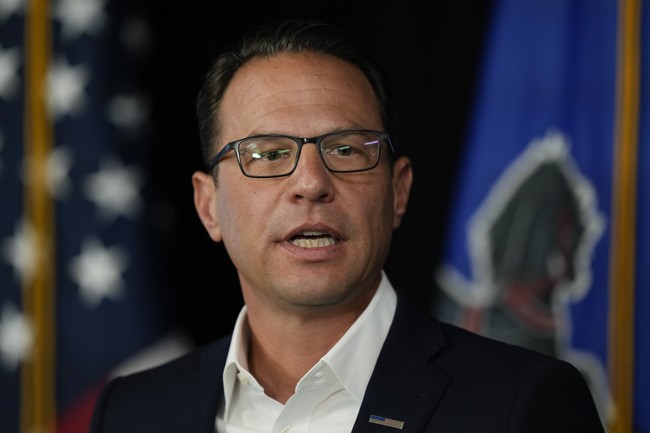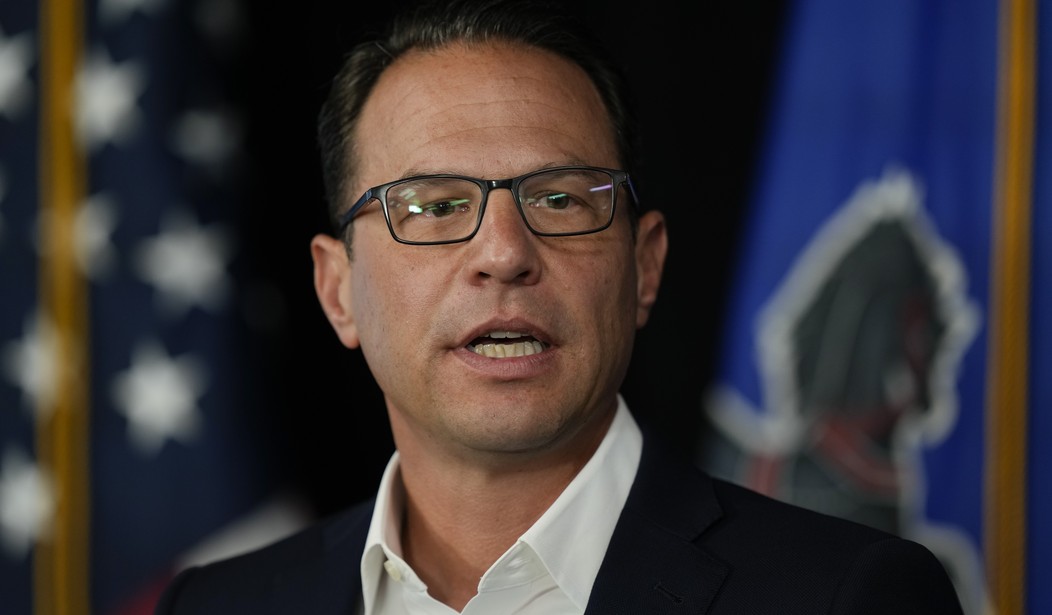Pittsburgh was recently at the center of the political and business universe, hosting a veritable who’s who of notable political and business leaders. But one attendee, Pennsylvania Gov. Josh Shapiro, stood out from the crowd—but for all the wrong reasons.
Shapiro, the lone elected Democrat at the event, shared a stage with business executives and even President Donald Trump at the “Pennsylvania Energy and Innovation Summit.” The event, hosted and organized by Sen. Dave McCormick, highlighted Pennsylvania’s robust energy sector.
My home state will power the artificial intelligence revolution, thanks to our abundance of natural gas, nuclear energy, and other sources of reliable, affordable energy.
But Pennsylvania’s energy sector faces tremendous political threats—especially from its governor. Shapiro is great at saying one thing about energy but doing the exact opposite.
For example, the governor flip-flopped on Pennsylvania’s membership in the Regional Greenhouse Gas Initiative (RGGI), the multistate compact that imposes a carbon tax on energy producers in participating states. As a candidate, Shapiro said RGGI did not represent “real action.”
And he was right: Analysis by Power PA Jobs suggests that RGGI’s carbon tax would increase electricity prices for Pennsylvania ratepayers by 30 percent. Pennsylvanians, already weary from paying their exorbitant utility bills, won’t be pleased with the rate hike RGGI promises.
Yet, after the Commonwealth Court ruled that RGGI’s carbon tax was unconstitutional, he appealed the decision, prolonging the commonwealth’s legal limbo.
Shapiro dangled abandoning RGGI as a carrot for his broader energy proposal: his Lightning Plan. The governor’s comprehensive energy proposal serves as his version of the Green New Deal—a strong signal to environmental lobbyists that he is on their side.
The Lightning Plan includes two sprawling proposals: the Pennsylvania Climate Emissions Reduction Act (PACER) and the Pennsylvania Reliable Energy Sustainability Standard (PRESS).
PACER is Shapiro’s version of RGGI, implementing a carbon tax on Pennsylvania energy producers. But instead of imposing this tax on multiple states, PACER taxes the Keystone State solely. Meanwhile, PRESS mandates that energy producers incorporate more solar, wind, and other unreliable sources into their portfolio.
PACER and PRESS come with a hefty price tag. Combined, recent analysis by the Commonwealth Foundation finds that PACER and PRESS will add $157 billion in new electricity costs over the next 10 years.
Outside of Pennsylvania, Shapiro hasn’t been a strong advocate for the commonwealth’s energy sector in Washington, D.C. He didn’t lift a finger to fight against federal overreach, such as President Joe Biden’s “pause” on liquified natural gas (LNG) or the EPA’s Clean Power Plant rule—both of which directly threatened Pennsylvania’s energy sector and compromised the reliability of the commonwealth’s grid. Meanwhile, Shapiro has found ample opportunities to file one lawsuit after another against the Trump administration.
If Shapiro genuinely wanted to get into the spirit of the energy summit, Shapiro should adopt a different approach.
First, Shapiro must abandon all proposals involving carbon taxes or energy mandates. That means no more RGGI, AEPS, PACER, PRESS, or any other alphabet-soup recipe he concocts.
Next, the governor must tackle genuine regulatory reform. Permitting, in particular, remains a challenge, both at the federal and state levels.
Shapiro has paid lip service to permitting reform. Last year, he signed the Streamlining Permits for Economic Expansion Development (SPEED) program into law. But the program only applies to 6 percent of Pennsylvania’s permits and requires extra fees for timely responses. The governor’s efforts have been, at best, half measures.
Ultimately, such minimal reforms only empower lawmakers to pick winners and losers in the marketplace. Regulatory reform must be universal and applicable to all business sectors. “That should not be something that is just for some companies,” said Pennsylvania State Senate President Kim Ward during the summit. “It needs to be across the board.”
Energy gives Pennsylvania a competitive edge. As the number-one exporter of electricity, the Keystone State has a comparative advantage due to its abundance of natural gas, nuclear power, and other forms of reliable, affordable energy.
“I think it’s critically important that we use Pennsylvania energy and the workers that create that energy … to be the ones powering the AI revolution,” said Shapiro during the energy summit.
Here, I wholeheartedly agree with the governor. And the commonwealth’s status as an energy juggernaut can continue to grow—so long as the governor stops getting in the way.
Andrew J. Lewis is President and CEO of the Commonwealth Foundation, Pennsylvania’s free-market think tank.
Editor’s Note: Help us continue to report the truth about leftist politicians like Josh Shapiro.
Join Townhall VIP and use promo code FIGHT to get 60% off your membership.





